The five-year research program aims to enhance advance care planning among Native Hawaiian elders using innovative video technology.
By Paula Bender & Marjorie Mau, MD
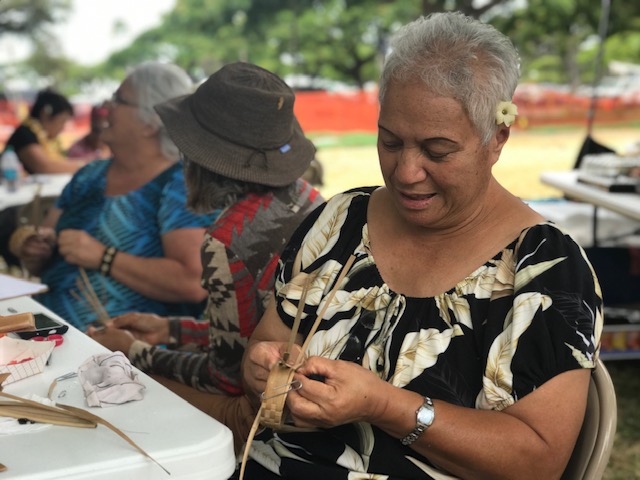
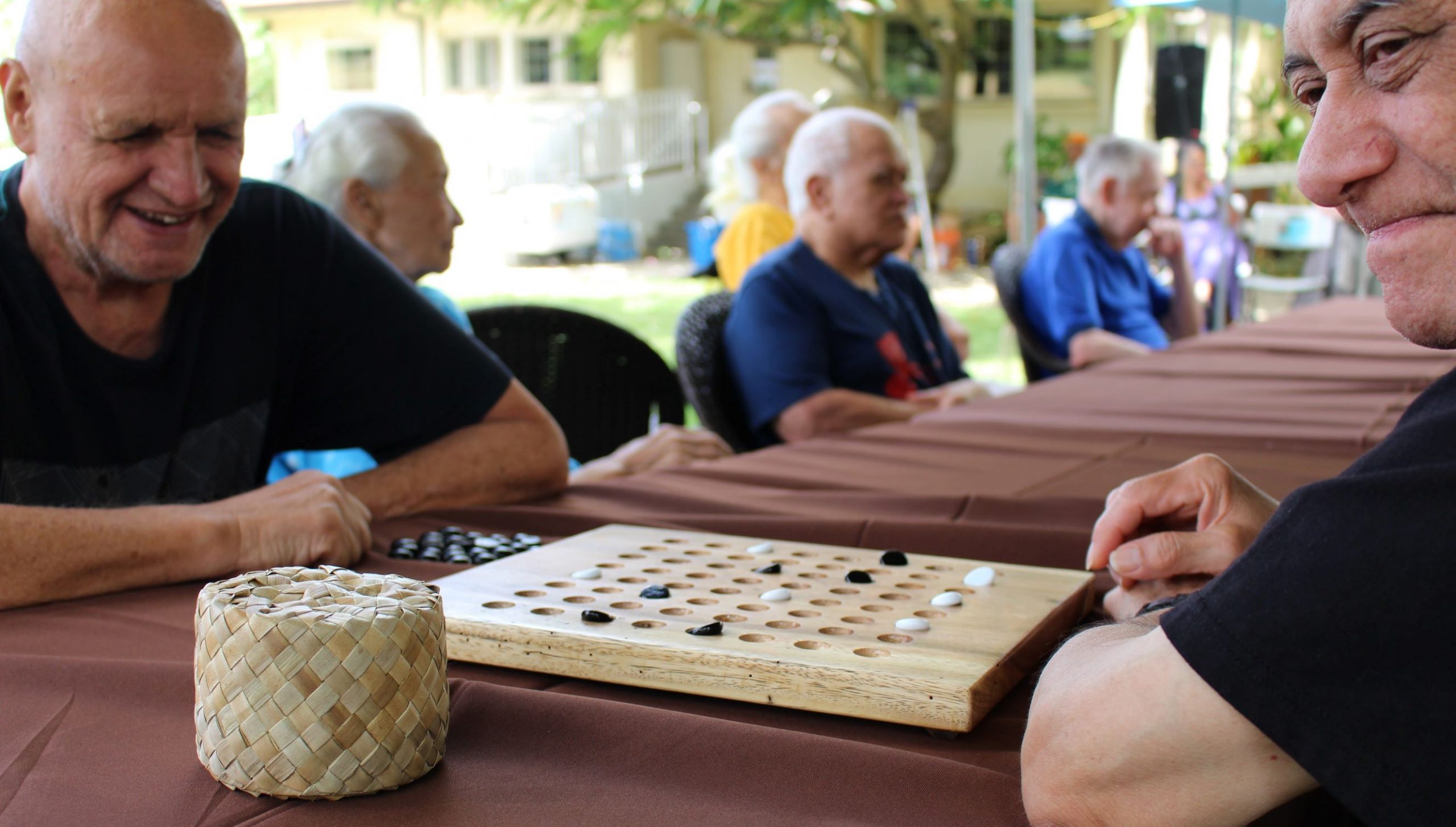
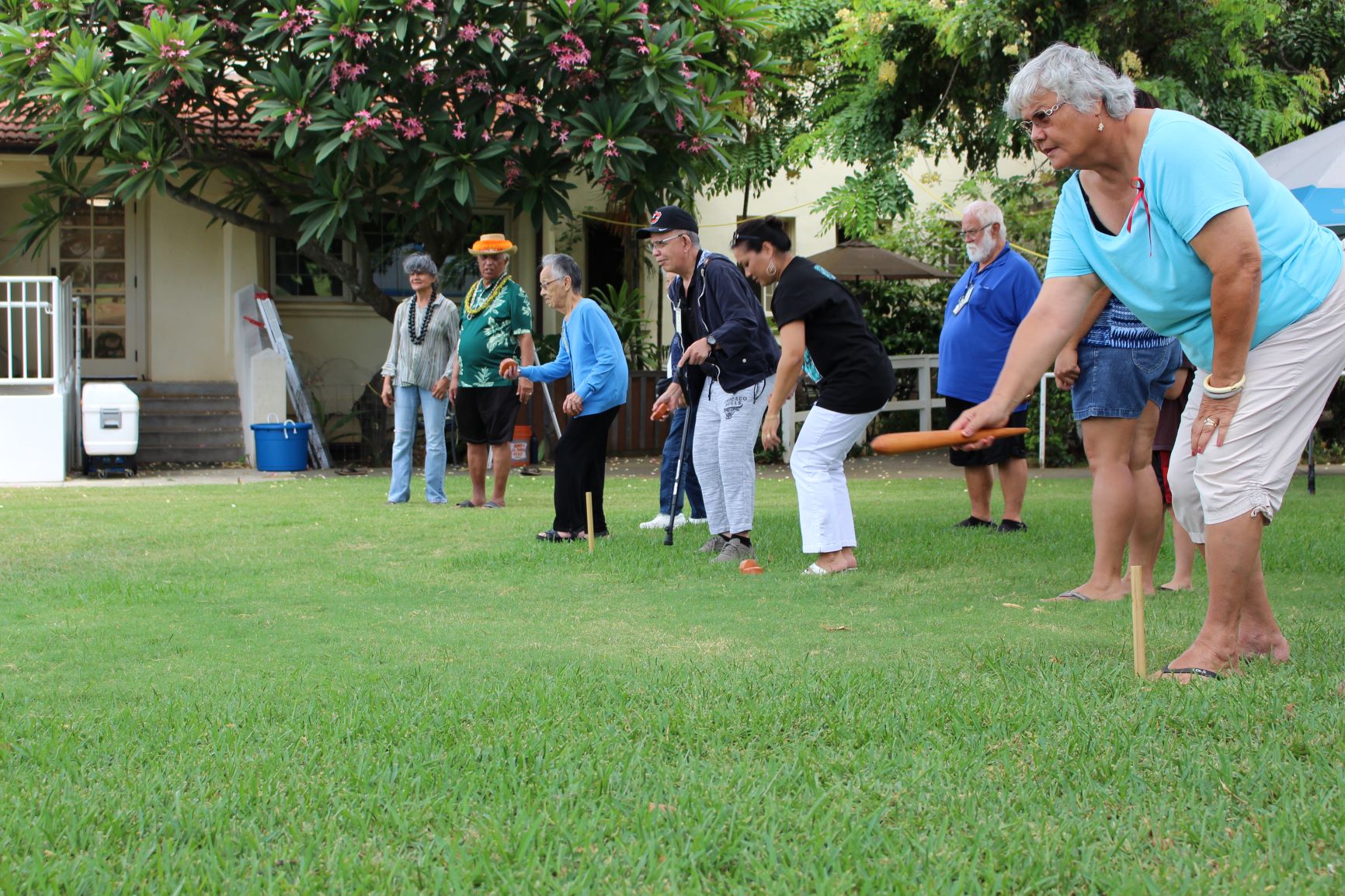
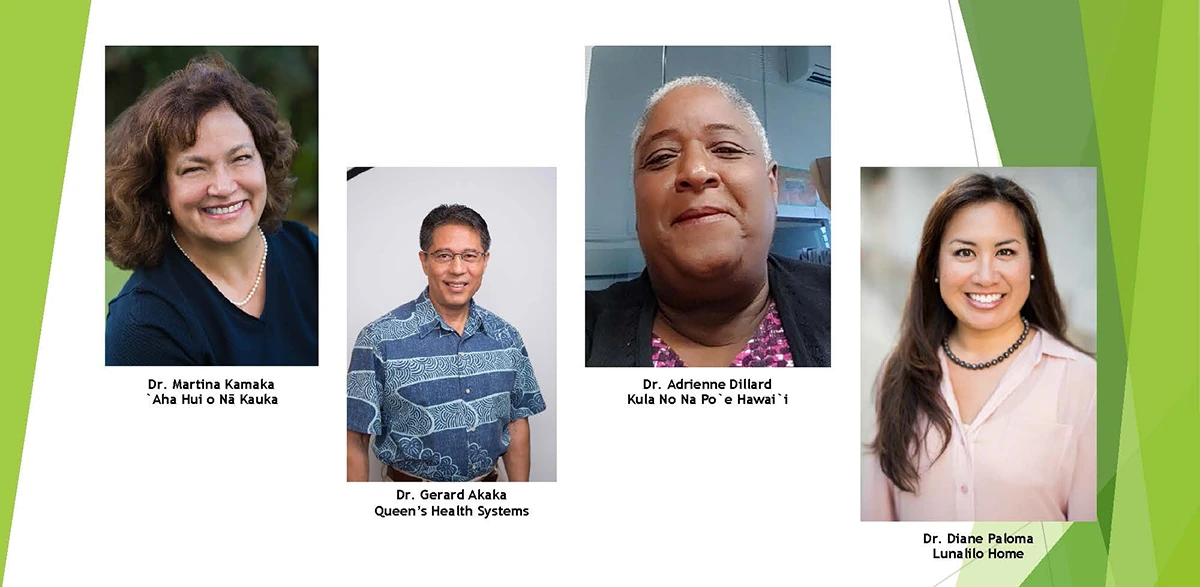
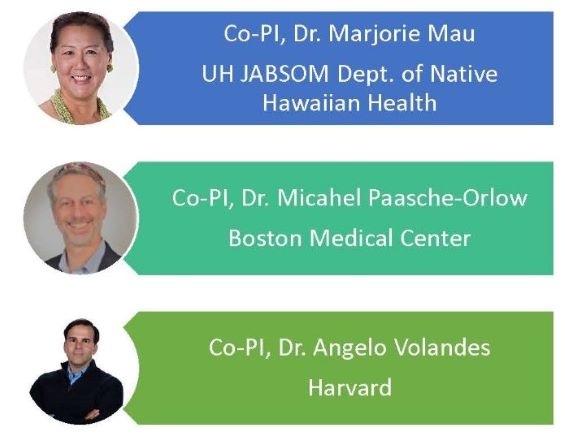
“I kua Na‘u, Let Me Carry Out Your Last Wishes,” is a new 5-year research program funded by the National Institutes of Health (NIH) through the National Institute of Nursing Research (NINR) to enhance advance care planning (ACP) for Native Hawaiian elders (kūpuna) and their families/caregivers through the use of video technology.
The scientific leadership team consists of three experienced scientists including Dr. Marjorie Mau (JABSOM, Department of Native Hawaiian Health), Dr. Michael Paasche-Orlow (Boston Medical Center), and Dr. Angelo Volandes (Harvard). The four community partners who will co-lead this project include Kula no nā Po‘e Hawaiʻi (Native Hawaiian homestead of Papakōlea), Lunalilo Home, ‘Ahahui o nā Kauka (Association of Native Hawaiian Physicians), and Queen’s Medical Center in North Hawaiʻi and Punchbowl.
ACP is a process to support individuals and their families in gaining a better understanding of their personal beliefs, cultural values, and life goals as it relates to future medical care. The ACP process means giving voice to these preferences of our elders by sharing them with their families and health care providers to ensure that they are honored.
ACP is not a new concept, however, having a plan in place and sharing it with your doctor remains a gap in our complex system of health care delivery. Native Hawaiians (NHs) are reported to have historically low rates of ACP completion estimated at ~40%. At the same time, the COVID-19 pandemic has increased the need for ACP especially among our NH kūpuna who are one of the most vulnerable groups to develop the severe complications of infection from the pandemic.
This research program, known as “I kua na‘u,” aims to fill that gap for NH elders and their families by using innovative video technology to improve the process of ACP to incorporate the cultural values, personal beliefs, and preferences of future medical care. The research program will develop a video declaration process designed for NH elders, conduct a clinical trial to test effectiveness of the intervention program, and finally, train community-based organizations to effectively use these “tools” in the future, even after the research program has ended.
Co-PI Dr. Volandes, a well-known ACP researcher, stated, “I can think of no better way to honor our elders than by honoring their traditions, language, and voices during these emotionally fraught times.” Co-PI, Dr. Paasche-Orlow, a well-established health literacy researcher, agrees, “We show respect for our elders by hearing their voices.” Co-PI, Dr. Mau, a well-known Native Hawaiian health disparities researcher, summarized all of their sentiments by saying: “Taking care of our kūpuna in this way, during these uncertain times, has never taken on such urgency for so many families, We are so pleased to be doing something that will bring useful reassurance to our kūpuna and their ‘ohana. Working alongside our community partners and providing training along the way means that the program will have a lasting impact.”
Our community-based research partners share in our enthusiasm of being part of this program and to bring the opportunities to their collective work of serving NH elders and their family-caregivers.
From Lunalilo Home, Dr. Diane Paloma said: “COVID-19 has made it increasingly difficult for the planning of kūpuna care. We look forward to ways of giving opportunities for open discussions in the advance care planning arena.”
In Papakōlea Dr. Adrienne Dillard of Kula no nā Po‘e Hawaiʻi spoke about how …“It is an honor to be a part of a project that protects the dignity of our treasured kūpuna by allowing them to share their wishes.”
At Queens Medical Center, Punchbowl, Dr. Gerard Akaka remarked that “… the end-of-life discussion is complex and challenging for families. We need ways to bridge the gap and this program will offer a ‘bridge’ for Hawaiian elders and their families.”
In ‘Ahahui o nā Kauka (Association of Native Hawaiian Physicians), Dr. Martina Kamaka asserts that: “It can be very difficult for our kūpunato talk with their ‘ohana (family) about their preferences for future medical care around end of life. We, as NH physicians, are excited to see if there is an easier approach.”
To learn more about “I kua na‘u: Let me carry out your last wishes” Research Program go to center4nativeresearch.org or call 808-692-1019.